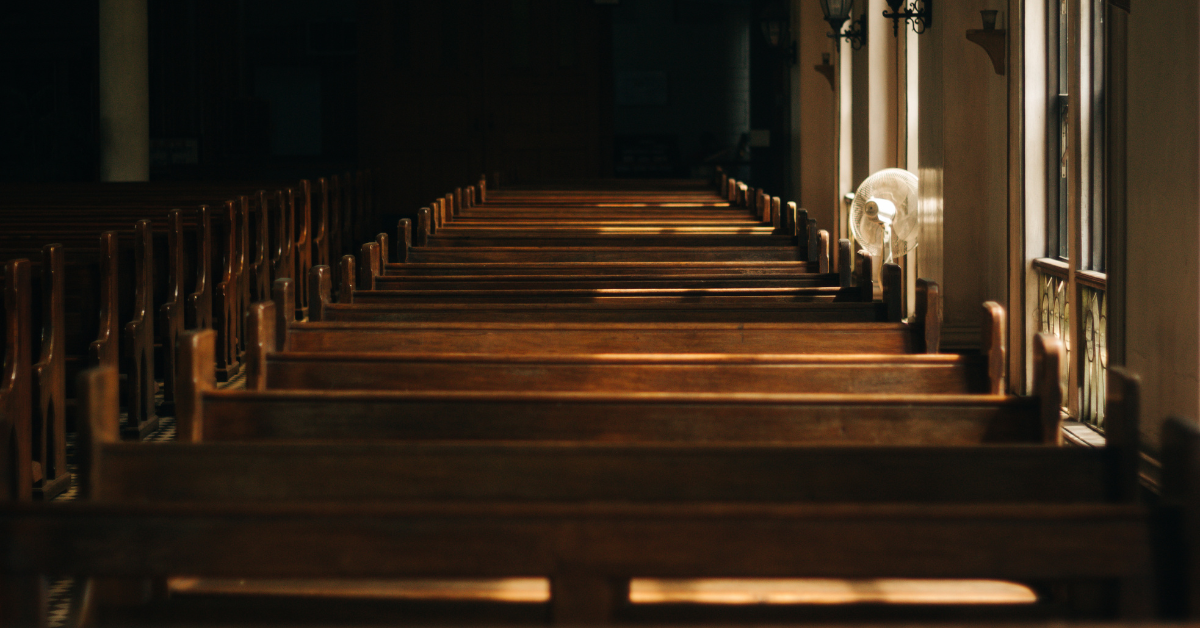On a rainy Sunday morning last fall, I listened eagerly as a guest preacher addressed our church for the first time: ‘Beloved, let’s read from the book of Jonah, chapter two….’ Something in the intimacy of this address caught my attention. Beloved. A strange term, spoken by a stranger. This guy, a stranger to our church by any worldly standard, didn’t know a single member of our congregation save the pastor. Yet almost instinctively, he called us ‘beloved’. Though he blessed us with a faithful exposition of Jonah, it was this greeting that stuck with me long after he had finished his sermon.
In our age of expressive individualism and magnified secularity, it’s not often that we’re greeted by strangers in such affectionate terms. What struck me about this little episode was simply how Christian it was; how inherently Christian it was. He was addressing us as fellow blood-bought brethren of Christ—God’s true and adopted children, all of whom share a mutual inheritance in His kingdom. As the true ‘heirs of God’, as the Apostle Paul declares in Romans 8, we are all, quite literally, spiritual kin. Thus does Paul, in Romans 12, call us to ‘love one another with brotherly affection.’ To this brother then, following the clear witness of Scripture, it was only natural that he address his Christian siblings with an expression of affinity and love. It didn’t matter that he had never met us before. We were all justified before God our Father by the blood of a shared precious Savior, and ‘born again to a living hope,’ ‘to an inheritance that is imperishable, undefiled, and unfading’ (1 Peter 1:3–4). As Christians, we are bound together by thick cords of communion, of which consanguineous and affinal connections are only a faint type. ‘Beloved’ of our Father God, it was clear we were the ‘beloved’ of this faithful fellow-heir, our brother.
As odd as it was to hear this greeting in a modern setting, this guest preacher was merely echoing the practice of Christians across the centuries. The writings of the early English evangelical figure John Bradford (ca. 1510–1555) offer especially poignant examples in this regard. Imprisoned and ultimately executed under the persecution of the Roman Catholic Queen Mary, Bradford kept up a lively correspondence from his prison cell with English Protestants-in-hiding, providing both pastoral counseling in the stead of evangelical ministers that had fled to the Continent, and simple Christian encouragement during an intense period of suffering for many. His extant letters show how sincerely he loved his fellow believers and how dearly he wished for their God-glorifying growth in grace. Despite being separated from his brothers and sisters in Christ physically, the unbreakable bond of spiritual kinship sustained these deep relationships—relationships which couldn’t be inhibited by the thick walls of a London prison.
Typical of this kind of exchange is a letter he wrote to Erkinald Rawlins and his wife around the year 1555. ‘My dearly beloved’; ‘My dear hearts’; ‘the Lord’s darlings’; ‘my good brother and sister’: Bradford showered this couple with terms of affection that adumbrated the depth of their spiritual connection in Christ. He encouraged them under ‘the afflictions’ of their day, to nevertheless ‘rejoice’ in God’s providence. Alluding to Hebrews 12, Bradford reminded them that God ‘chastiseth every child whom he receiveth’ and therefore, given their suffering, they could be sure that they were indeed God’s ‘dear elect children’. Thus, he comforted them with the sweet truth that they ‘have no cause to sorrow, but rather to sing, in seeing yourselves to be God’s babes, and in seeing that all God’s children do so count you’. Their persecution as Protestants under a militantly Catholic regime was a ‘badge of God’s children’ and therefore clear evidence that God was their Father.[1]
Bradford’s expression of brotherly affection even extended to Christians with whom he disagreed vehemently on important theological issues. In February of 1555, expecting imminent execution, he addressed a farewell letter to Henry Hart, Robert Cole, Nicholas Sheterden, and others. Bradford had spent much of the previous year embroiled in a very public and heated debate with these men over the nature of predestination and the extent of the atonement. Yet in light of the eternity to which his impending execution would lead him, Bradford wanted to part from them in this earthly life in unity, as brothers confessing a common faith in their same Lord. He greeted them therefore as his ‘dearly beloved in the Lord’. Bradford explained that, despite their disagreement, he was ‘persuaded’ of them that they ‘fear the Lord’. Thus, he assured them, ‘I love you and have loved you in him, my dear hearts’. The whole letter was marked by a tone of reconciliation and unity rooted in their common faith in Jesus Christ. Though he didn’t minimize their very serious disagreements, Bradford recognized the importance of the brotherly love to which all Christians were called. As he brought his thoughts to a close, he reminded them that ‘I am going before you to my God and your God, to my Father and your Father, to my Christ and your Christ, to my home and your home’. Because of their shared eternal inheritance, Bradford explained that he could ‘not but, before I go, signify thus much unto you as I have done, that you might see my love and thereby be occasioned to increase in love’. He concluded by leaving them with the promise that they would all ultimately ‘meet together in Christ’s kingdom, and there never part asunder, but praise the name of our good God and Father, with…all the saints of God’. This reality moved Bradford to address his former adversaries as ‘brethren’ and to express an affection only possible among spiritual kin. This affection honored God and recognized the gravity of the fellowship and communion wrought by the blood of Christ.[2]
In this fallen world, some chasms are simply too wide to be crossed. But where we can and should build bridges—that is, with other believers—let us hurry to both construct and use them in Christian love, eager to promote fellowship among the ‘brethren’, in remembrance of our common inheritance through Jesus Christ. This is just what the guest preacher did at my church last fall in greeting a room full of folks he didn’t know with the simple but unfathomably deep term of Christian affection, ‘beloved’.
[1] The Writings of John Bradford, ed. Aubrey Townsend (Cambridge: Cambridge University Press, 1853), II:221–26
[2] The Writings of John Bradford, II:194–198.
Author
-

Jonathan Baddley is a PhD student at Cambridge University, serves as the Reformation theology editor for the London Lyceum, and as Senior Editor for Confessional and Historical Theology at Hanover Press. While focused broadly on the progress of the Protestant Reformation in 16th and 17th century Europe, he is especially interested in ecclesiology and church discipline in post-Reformation England. He is writing a dissertation on preparation for the Lord’s Supper in the long 17th century. He has a forthcoming essay in Church History entitled ‘Puritanism, Spiritual Kinship, and the Lord’s Supper in Elizabethan and Early Stuart England.’
View all postsRecent Posts




